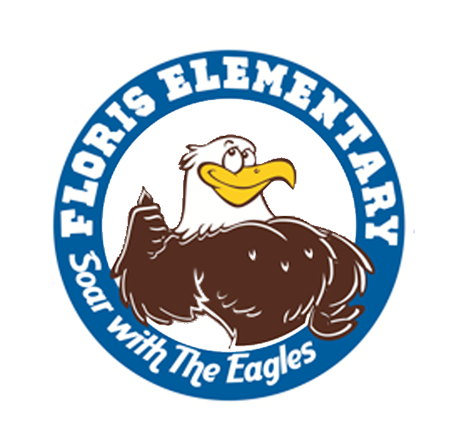School Innovation and Improvement Plan
Outcome Goals for 2024-25 School Year
School Innovation and Improvement Plan At A Glance
- 2024-2025
- Floris Elementary School
- Region 5
- Joshua DeSmyter, Principal
Reading by 3rd Grade | ||
Measurable Outcomes | TARGETED: The percentage of Multilingual Learners in grades K-3 meeting or exceeding VALLSS screener benchmarks will increase by 5 points from fall 2024 to spring 2025. UNIVERSAL: The percentage of students in grades K-3 meeting or exceeding the VALLSS screener benchmarks will increase by 5 points from fall 2024 to spring 2025. | |
Strategy 1 | Leverage use of daily, explicit language comprehension lessons from the new core curriculum for building knowledge and vocabulary. | |
Strategy 2 | Improve integrity of implementation of new core curriculum, English Language Development program, and/or intervention programs by using FCPS-adopted resources with fidelity. | |
Strategy 3 | Increase teacher content knowledge of evidence-based literacy instruction aligned with science-based reading research to improve implementation of new core curriculum. | |
Elementary Math | ||
Measurable Outcomes | TARGETED: By the end of the 2024-2025 school year, the percentage of students with disabilities passing the G 3-6 Mathematics SOL will increase from 45% to 50%. UNIVERSAL: By the end of the 2024-2025 school year, the percentage passing the G 3-6 Mathematics SOL will increase from 81% to 86%.
| |
Strategy 1 | Improve teachers' implementation of Framework for Engaging & Student-Centered Mathematics Instruction. | |
Strategy 2 | Increase teacher implementation of explicit instruction and other components of effective mathematics intervention. | |
Strategy 3 | Increase teachers' implementation of strategies and conversation structures that increase academic talk between students related to Shift 4: from show and tell to share and compare. | |
Portrait of a Graduate (POG) | ||
Measurable Outcomes | 100% of Kindergarten- 3rd grade students will learn about, use, and apply POG skills in their core classes and specials and will score at least proficient on Criterion 1 of the POG POL rubric. 100% of 4th-6th grade students will participate in a POG POL through their specials block. | |
Strategy 1 | Design and implement meaningful learning experience such as performance tasks and PBL, where projects (Resource 1) begin with a driving question and culminate in students creating a product, solving a problem, or delivering a presentation that can be shared with the wider community. | |
Strategy 2 | Leverage goal-setting and feedback conversation templates with students to discuss learning goals and develop a plan to achieve them. | |
Strategy 3 | Create portfolios (Resource 1) dedicated to documenting growth in POG/ ATL attributes and skills. | |

